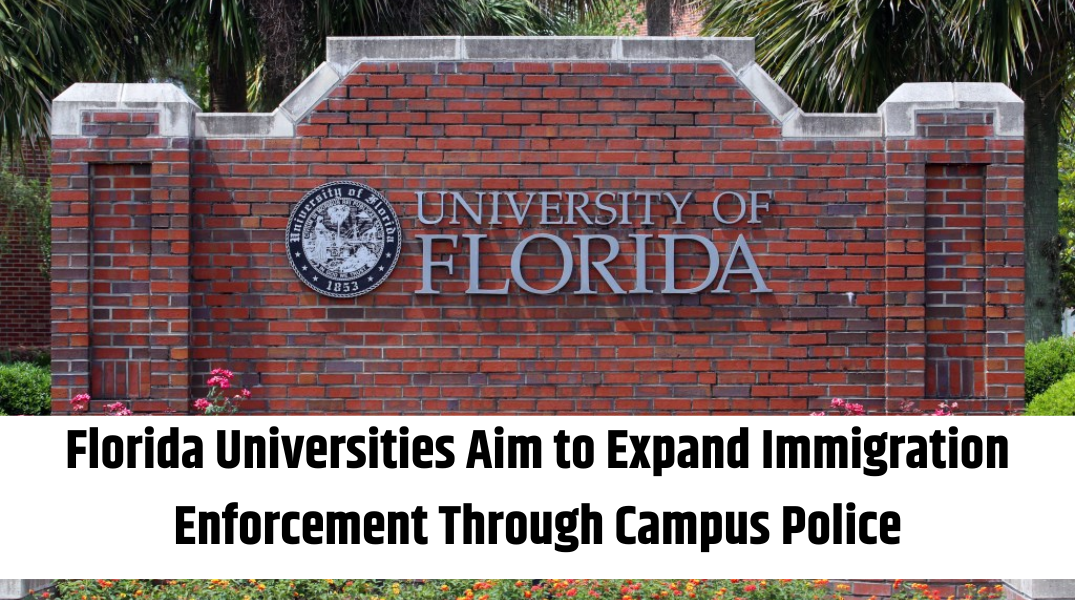
Campus police departments at several Florida public universities are taking steps to partner with federal immigration authorities in a controversial move aimed at broadening their role in enforcing immigration laws.
Florida Atlantic University (FAU), the University of Florida (UF), and the University of South Florida (USF) have confirmed they are seeking to join a federal program that would grant their campus police officers limited immigration enforcement authority. The initiative is part of a broader effort by state officials to align with federal immigration policies, particularly under the influence of Governor Ron DeSantis.
The universities are considering participation in the 287(g) program, a U.S. Immigration and Customs Enforcement (ICE) initiative that allows local and state law enforcement agencies to perform certain immigration-related functions under federal oversight.
FAU spokesperson Joshua Glanzer explained that the move is a response to a directive issued by Governor DeSantis on February 19, which called on all state law enforcement entities—including university police—to support federal immigration efforts to the fullest extent possible.
“This is about following the guidance provided by the Governor’s office,” Glanzer stated, emphasizing that campus police departments are considered part of the state’s broader law enforcement framework.
Under the 287(g) program, ICE can deputize officers through one of three models: the task force model, the jail enforcement model, and the warrant service officer model.
The University of Florida is reportedly exploring the task force model, which would give campus officers the power to question individuals suspected of being undocumented about their immigration status and, in certain cases, detain them without a warrant.
Also Read – Audrey Hale’s Diary Reveals Plan to ‘Kill All the White Kids’ in Nashville School Shooting
The jail enforcement model, another option under the program, enables officers to identify and process non-citizens in custody who are believed to be removable under immigration law. Meanwhile, the warrant service officer model allows designated officers to carry out administrative immigration warrants for individuals already in custody.
At present, no university police departments nationwide have officially signed onto the 287(g) program, but schools in Florida appear to be leading the charge.
The move comes amid a broader national climate of heightened immigration enforcement. Recent reports indicate that international students have faced visa revocations for reasons ranging from traffic violations to allegations of terrorism. These actions have sparked concern and confusion across college campuses, particularly among student populations from abroad.
As of early April, only 11 states remain without an active or pending 287(g) agreement, underscoring the program’s growing presence nationwide.
This shift by Florida universities highlights the increasing intersection between higher education institutions and immigration enforcement—a relationship that some view as politically motivated and fraught with civil rights implications.
Critics argue that deputizing campus police for immigration tasks could undermine trust between students and campus law enforcement, particularly among immigrant and international student communities. Proponents, however, say it reinforces public safety and aligns with federal and state law enforcement goals.
As the conversation continues, the final decision on whether these university police departments will formally join the 287(g) program remains pending.




